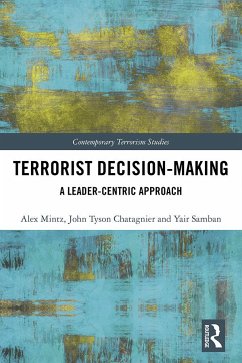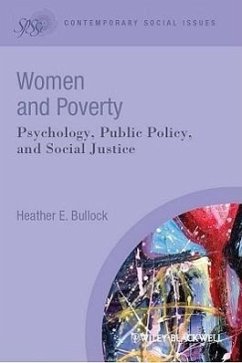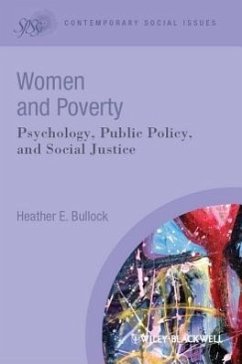
Applying Psychology
The Case of Terrorism and Political Violence
Versandkostenfrei!
Versandfertig in über 4 Wochen
77,99 €
inkl. MwSt.
Weitere Ausgaben:

PAYBACK Punkte
39 °P sammeln!
This volume investigates the application of psychological theory to the case of terrorism and political violence. This book offers a framework for approaching psychological research on terrorism that encourages an explicit orientation to the issues that have acted as road blocks to the potential for psychology as a discipline to meaningfully contribute to terrorism research. The framework encourages researchers to define the research parameters in clear concise terms, devoid of theoretical jargon and rooted in an understanding of real world social problems. Furthermore, researchers are encoura...
This volume investigates the application of psychological theory to the case of terrorism and political violence. This book offers a framework for approaching psychological research on terrorism that encourages an explicit orientation to the issues that have acted as road blocks to the potential for psychology as a discipline to meaningfully contribute to terrorism research. The framework encourages researchers to define the research parameters in clear concise terms, devoid of theoretical jargon and rooted in an understanding of real world social problems. Furthermore, researchers are encouraged to be explicit about the vantage point through which the problem is being viewed (i.e., is it a problem for participants themselves? For broader society, for policy-makers and other stakeholders?) and what the intended outcome of the research might be. Furthermore, this volume aims to demonstrate how to apply existing psychological theory to terrorist related phenomenon. In doing so, researchers are asked to consider whether the research problem is psychological in nature and if so, what existing theories can help explain, if not alleviate the problem. As such, researchers in psychology are encouraged to dig deep, to tap into the wealth of knowledge available in psychology to understand terrorist related phenomenon as embedded within normal psychological processes, albeit manifesting in what can be considered exceptional situations and circumstances. Applying Psychology: The Case of Terrorism and Political Violence will appeal to academics, students, and professionals interested in applied psychology, terrorism studies, sociology, international security, and international relations.













